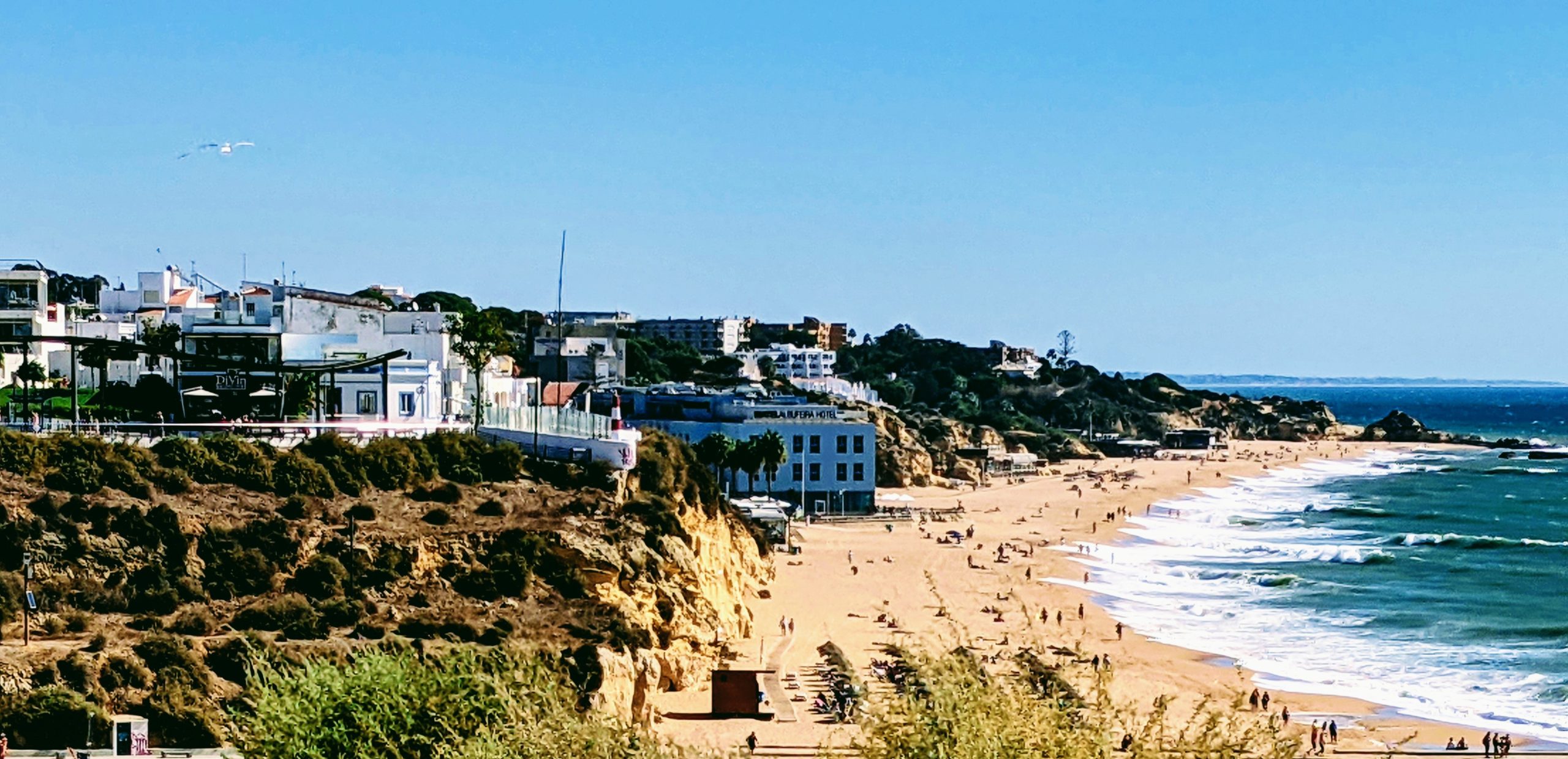
I am a traveling neophyte, despite my rather advanced age. In this, I have no expectations or preconceived notions, but also not a lot of savvy. You can plan and plan in advance of a trip, visiting many websites, reading articles, looking for the best airfares and lodging to fit your budget, but in the end, unexpected surprises are bound to occur. And there was more than one for me, as I wended my way to the Algarve region of Portugal recently – my first foray to the European continent since moving to Ireland.
The size and magnitude of Albufeira, where I stayed, was certainly one. The Islamic influence in the region, another, given my culturally insular upbringing. OK, I did expect the towering palms, but not the tiny shop where an elderly woman wove beautiful frond baskets. And dolt that I am, I did not even begin to understand how important and pervasive the beautiful Azulejo ceramic tilework is to the culture. That was a joyful surprise.
Albufeira was a bit of an eye-opener. I could read in the comfort of my Irish home that it is a coastal city in the heart of the Algarve and known for its tourist trade. I grew up in a coastal community; I understand how they tick, for the most part. I was surprised, though, at the extent to which the entire city is built around and for visitors. Albufeira’s 40,000 population swells to 300,000 in the summer. This is evidenced by massive hotels, bars and restaurants chockablock, souvenir-filled stores, and hundreds of apartment buildings and housing complexes that appeared empty when I was there – as evidenced by the shutters on the windows and doors. The Algarve region as a whole annually welcomes 5 million visitors (well, in preCOVID times; maybe it’s not quite there now) who spread out over a sizable coastal area with Albufeira as the center hub. Even in October, even in this particular October of pandemic winddown, quite a number of people were visiting the city. Beaches were crowded, although not cheek-to-jowl, and streets were bustling.
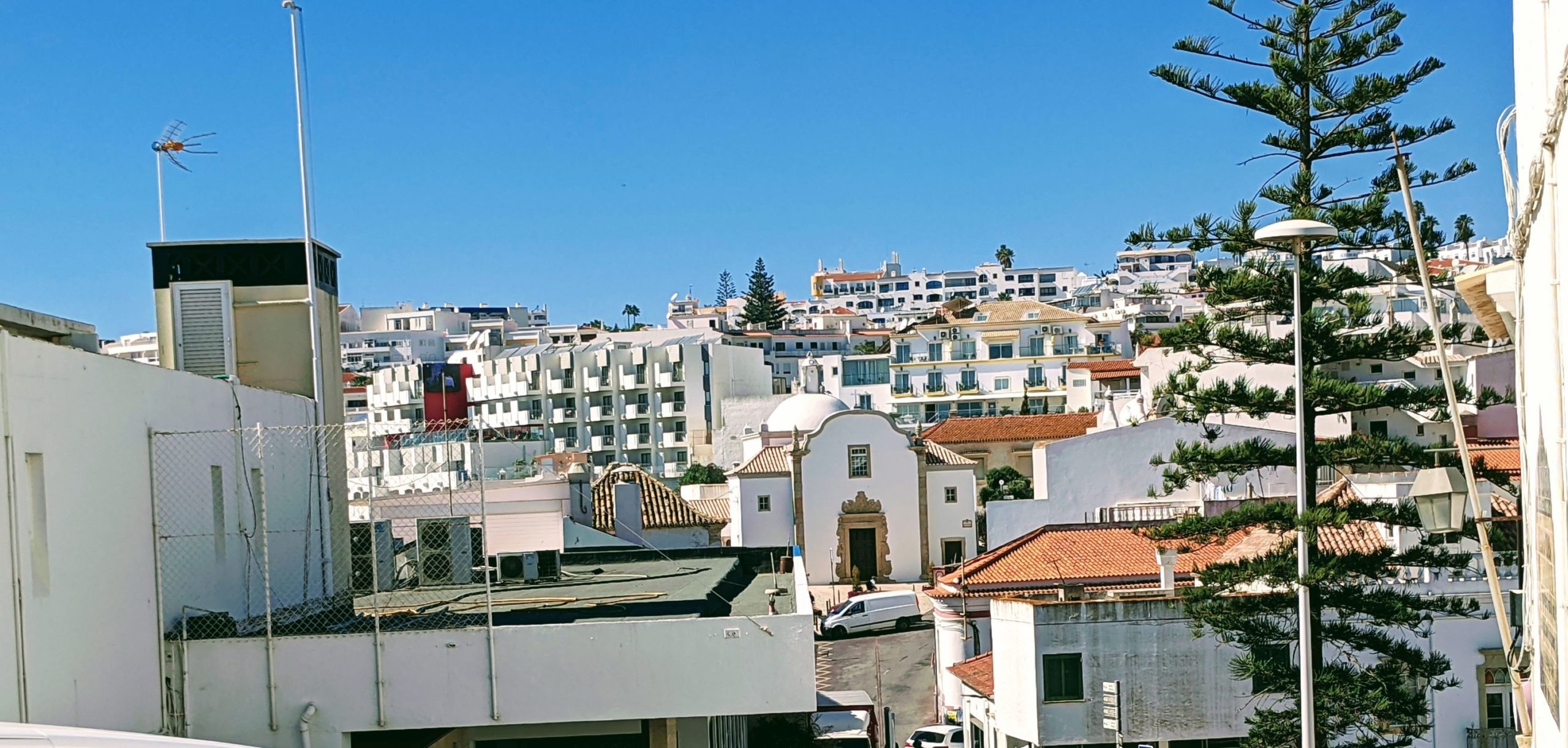
I think for a certain kind of visitor, this must be heaven. And I have to tell you, as I woke up day after cloudless, 75-degree day, I certainly appreciated what was offered to me by the friendly weather gods. The sun, which I was told is unrelenting and blistering in July and August, was quite mild. I went to the beach several times, for hours at a time, and never broke a sweat. The Atlantic waters were temperate enough for me to swim – although I’m a New Englander, I’m a total wimp when it comes to a cold Atlantic Ocean. And the fall certainly seems a propitious time for budget-minded folks like me. I was able to get an entire (and beautiful) apartment on Airbnb for €36 (roughly $41) night, so was able to eat in many nights and save money. And as the region is apparently a vacation destination of choice for UK citizens (a number of restaurants touted ‘full British breakfasts’ and a lot of pubs flew the Union Jack), everyone speaks English. I did find myself yearning for a quieter, more rural Portugal and I hope future travel brings to these regions. Having said that, I really do understand that the country, still digging out from a devastating economic crisis in the early-to-mid teens and then whammed with a pandemic, relies on the revenue of the Algarve region. I come from a part of Maine dubbed the “gold coast” because of all the money residents contribute to state coffers. It’s all a balancing act.
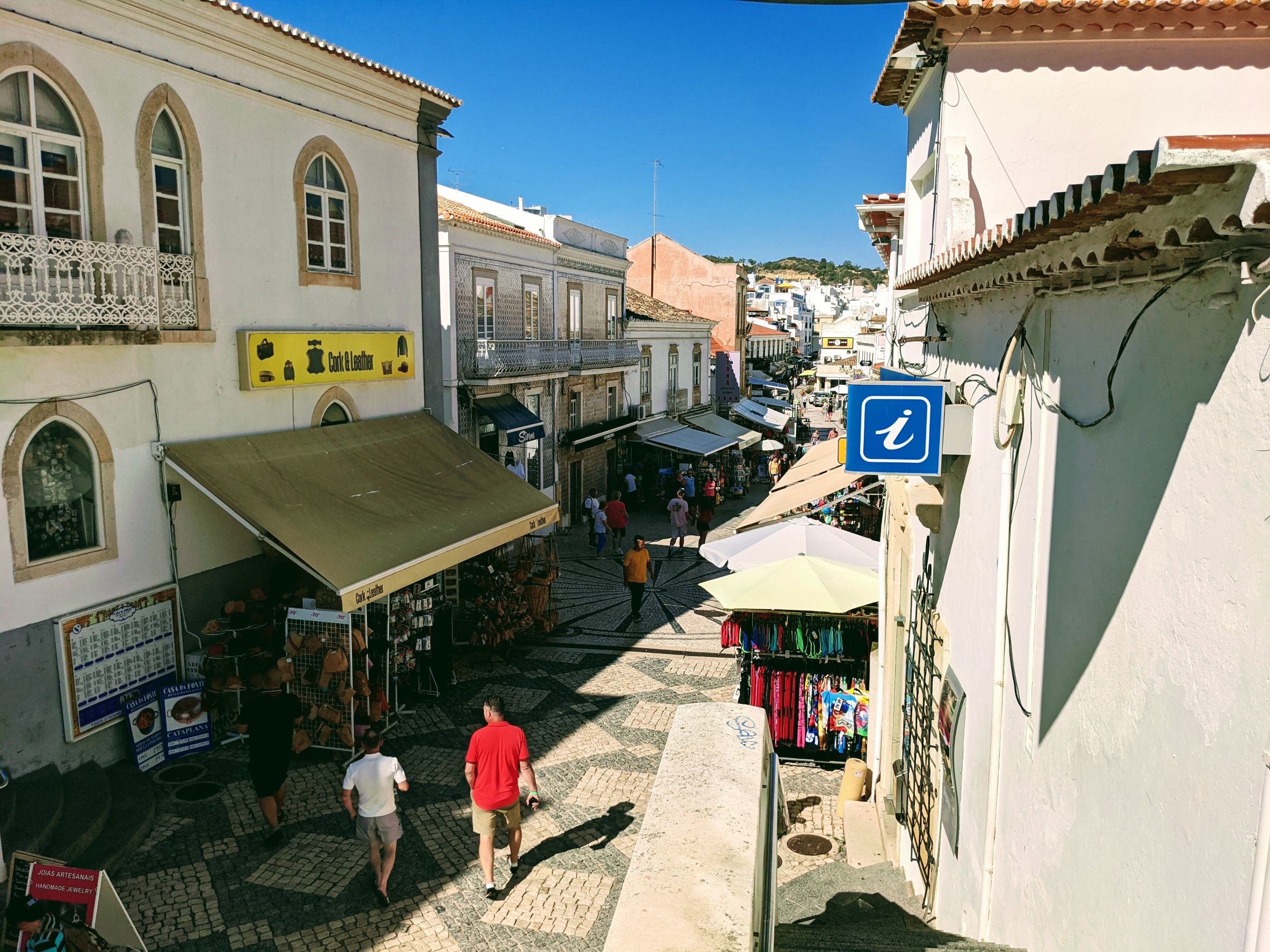
I would be lying if I told you I had no trepidations at all about traveling solo. So I made a mental list. Cross-body purse always zipped up? Check. Cell phone in purse and not in back jeans pocket where I always put it? Surprisingly, check. Small amounts of cash and no credit cards in super hidden pocket in beach backpack? Check. Walking purposefully with no sense of hesitation or furtivity? Check. Still, as a single older woman there were moments when I just wanted to stay in my apartment, not tempt the fate of the world out there. So before I left, I created a “bravery quotient” that I was determined to meet. It wasn’t too, too onerous. I just made myself promise that I would eat dinner in a nice restaurant and that I would take a local bus to an area town and get back to Albufeira without ending up in East Overshoe! I’m happy to say I accomplished my goals and I lived to tell the tale.
In fact, I visited two towns in the Algarve, the market town of Loulé and the ancient Islamic capital of Silves. I’m so pleased that I did. I visited Loulé on market day, Saturday, where upward of 100 or more food vendors of all stripes displayed their fares. It was like a farmer’s market on steroids! Among them were several folks selling seedlings to plant, in October (!), and more fishmongers than I could possibly count. I was only sad that I didn’t live there and couldn’t come every Saturday for my weekly shopping. As it is, I tried to limit my purchases but I could not pass up the fresh figs or the hot peppers which, miraculously, both made it past airport security and are now happily ensconced on my kitchen counter.
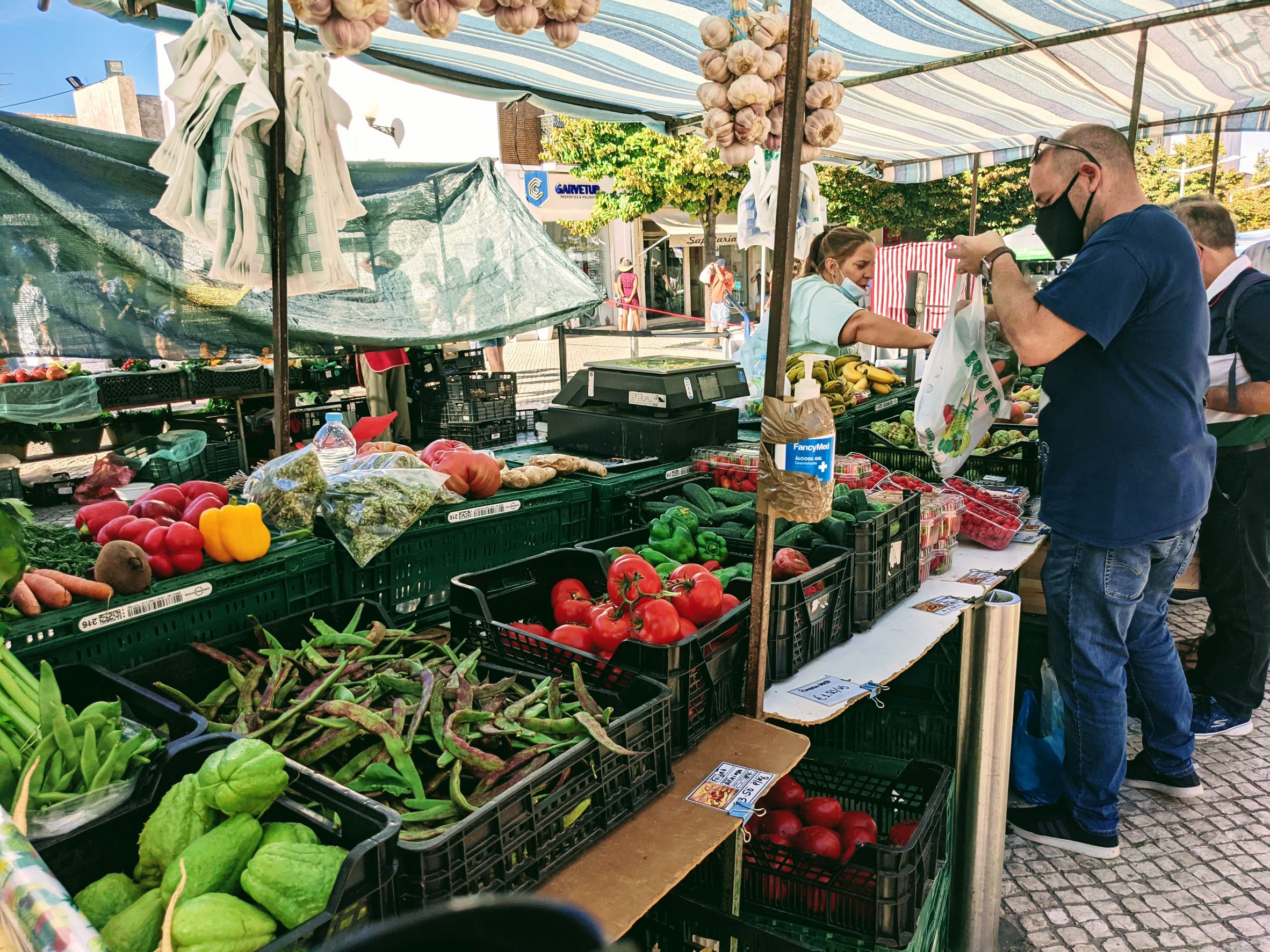
When I stepped off the bus at Silves and began to wander through the town, I felt an immediately peace. Here was a Portugal that I hoped to glimpse – few visitors, narrow cobblestone streets, and history, history, history. Silves was the capital of the Algarve after it was conquered by Islamic rulers from North Africa, who occupied the region for nearly 600 years starting in 711CE. Christians apparently coined the term Moors (think “Othello”). The town is built on a hill overlooking a river, so no surprise it was viewed strategically. Administrative buildings for the Muslim rulers, their residences and a most impressive cistern that supplied water to the entire city were built inside the imposing Silves Castle. The castle, restored in the 1940s, dominates the skyline today. In what I think of as a bit of religious kismet, the nearby Silves Cathedral is built on the ruins of a mosque. Turns out Azulejo, the Portuguese tileworks, is derived from an Arabic word meaning “polished stones,” and the earliest tiles date back to the Islamic period. An important chapter in the Deborah McDermott Neophyte Traveler textbook is marked ‘History,’ and through this prism I am going to have such a greater understanding of the world. I can’t wait.
And there is also a chapter marked “Lessons of Today.” As I interacted with people in the Algarve, took the Ubers, visited the shops, hopped on the buses, ordered the food, I was reminded of what a multicultural world we live in. While my seasoned traveler readers may nod indulgently at this obvious observation, to me it was, if not quite a revelation, then certainly reason to pause for thought. I am not sure how one can travel the world and yet hold on to prejudices. The Airbnb apartment where I stayed is owned by a delightful young Russian, a turbaned Muslim picked me up in his Uber car, a Brazilian and a Ugandan woman waited on my table, the owner of my favorite breakfast place is German. Would one not rent the apartment, get in the car, sit at the restaurant, because of preconceived notions of nationality or skin color? Likely not, because there would be no vacation without these interactions. Travel is a great leveler, I think. And once the door is open just a little bit to a wider view, can understanding be far behind?
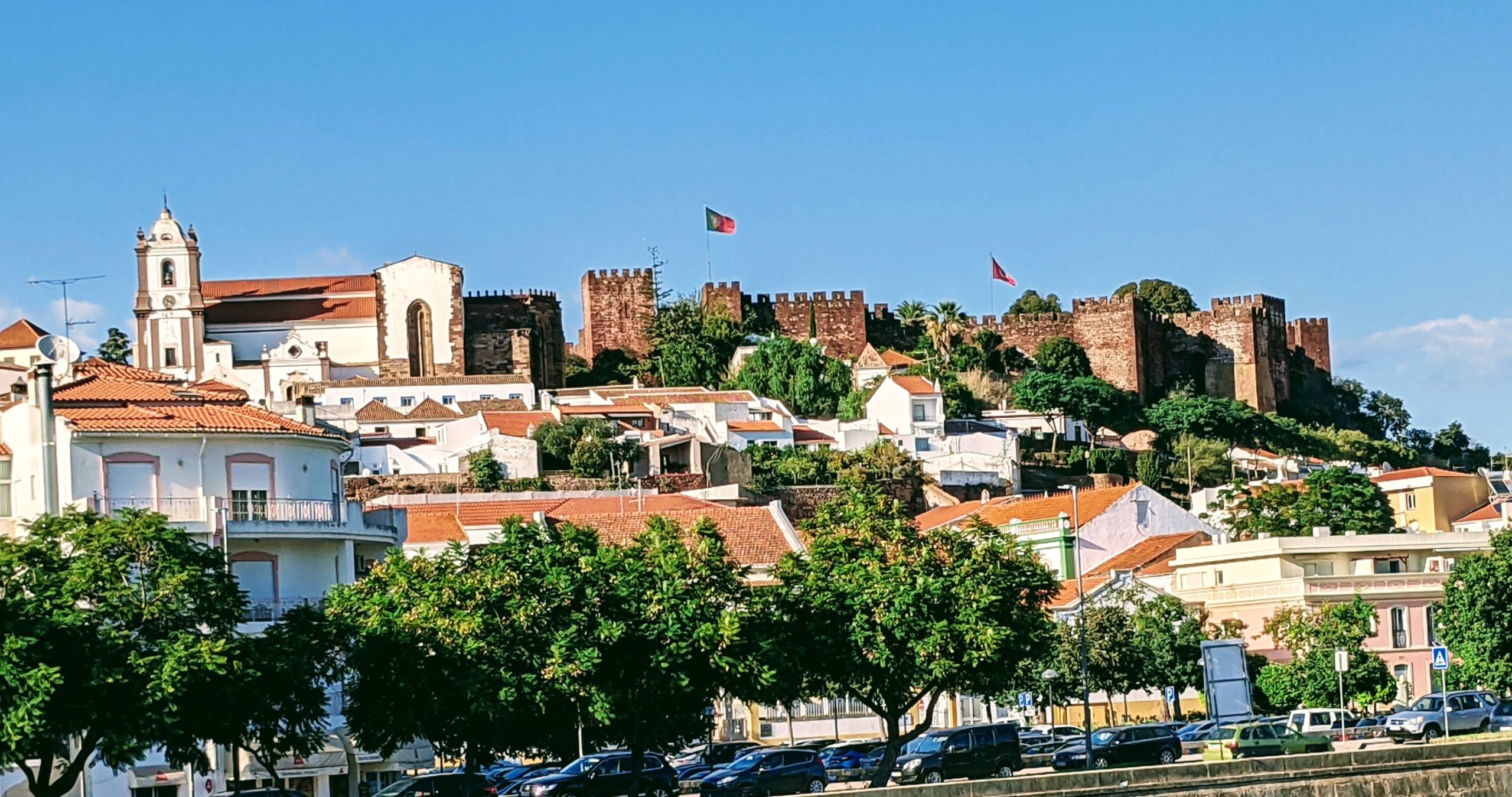
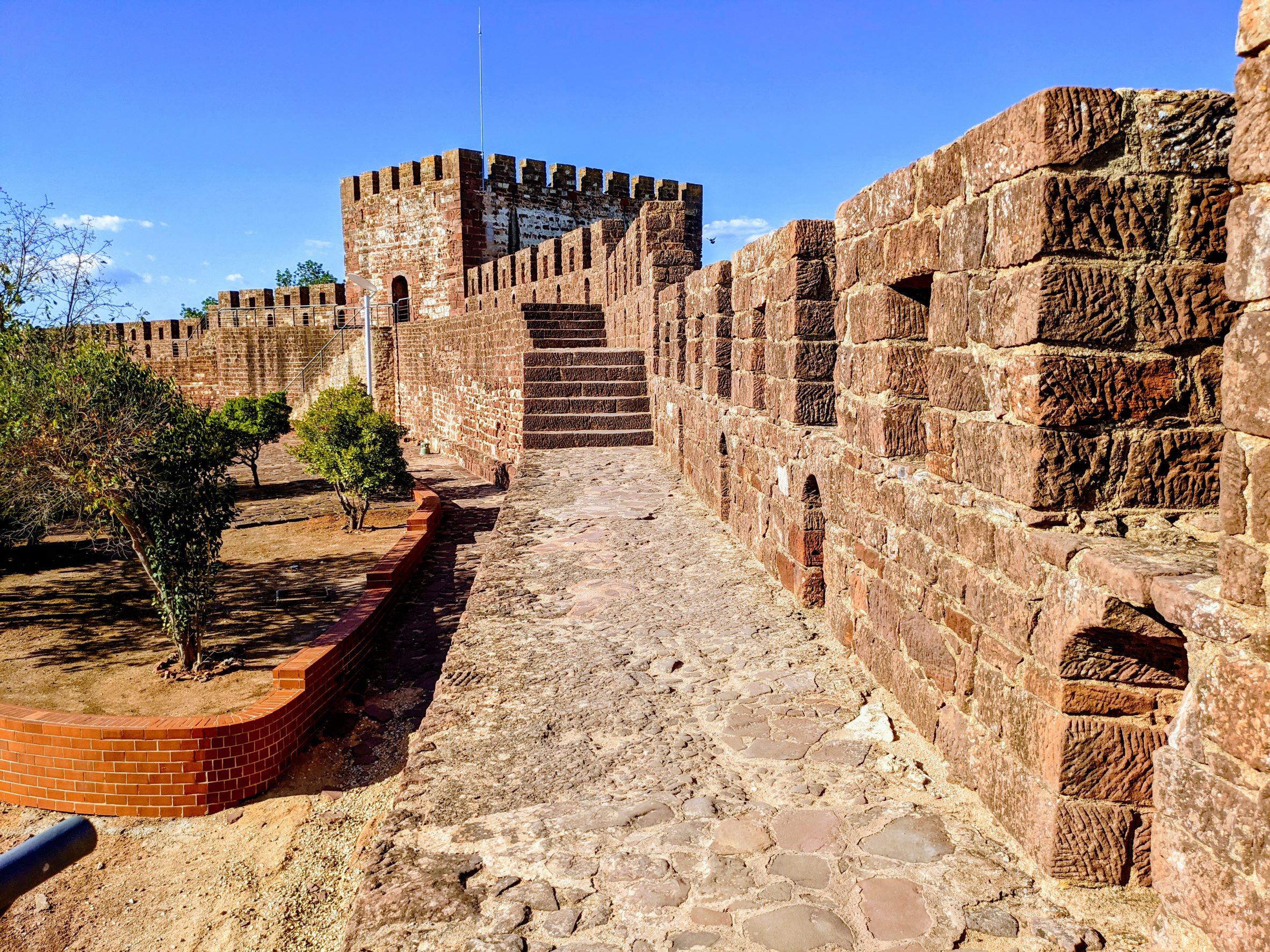
One final thought before I close. I have become so accustomed, here in Ireland, to its friendly people. It’s the unusual walk I take when I don’t have one or two brief conversations with folks – fellow walkers, homeowners in their yards (“gardens” here), shop owners. The driver of just about every car that passes me will inevitably raise a hand, or maybe just the index finger, as he or she passes, and I wave back. This is just the way of it here, and these friendly moments have become not only customary but a real pleasure. Unfortunately, I do not find such engagement in the US, and I did not find it when I was in Portugal. No fellow walkers met my eyes, no hand was raised by passing motorists. I don’t know why. Perhaps people just have enough to be getting on with. Perhaps my forehead stamped ‘tourist’ or my age was off putting. Perhaps they’re just burned out from a summer’s worth of hospitality. But I found myself really looking forward to returning here, where getting on with things includes a friendly wave or bit of conversation. And here I remain until the next time – which will probably be Rwanda in February to visit my daughter. Onward!
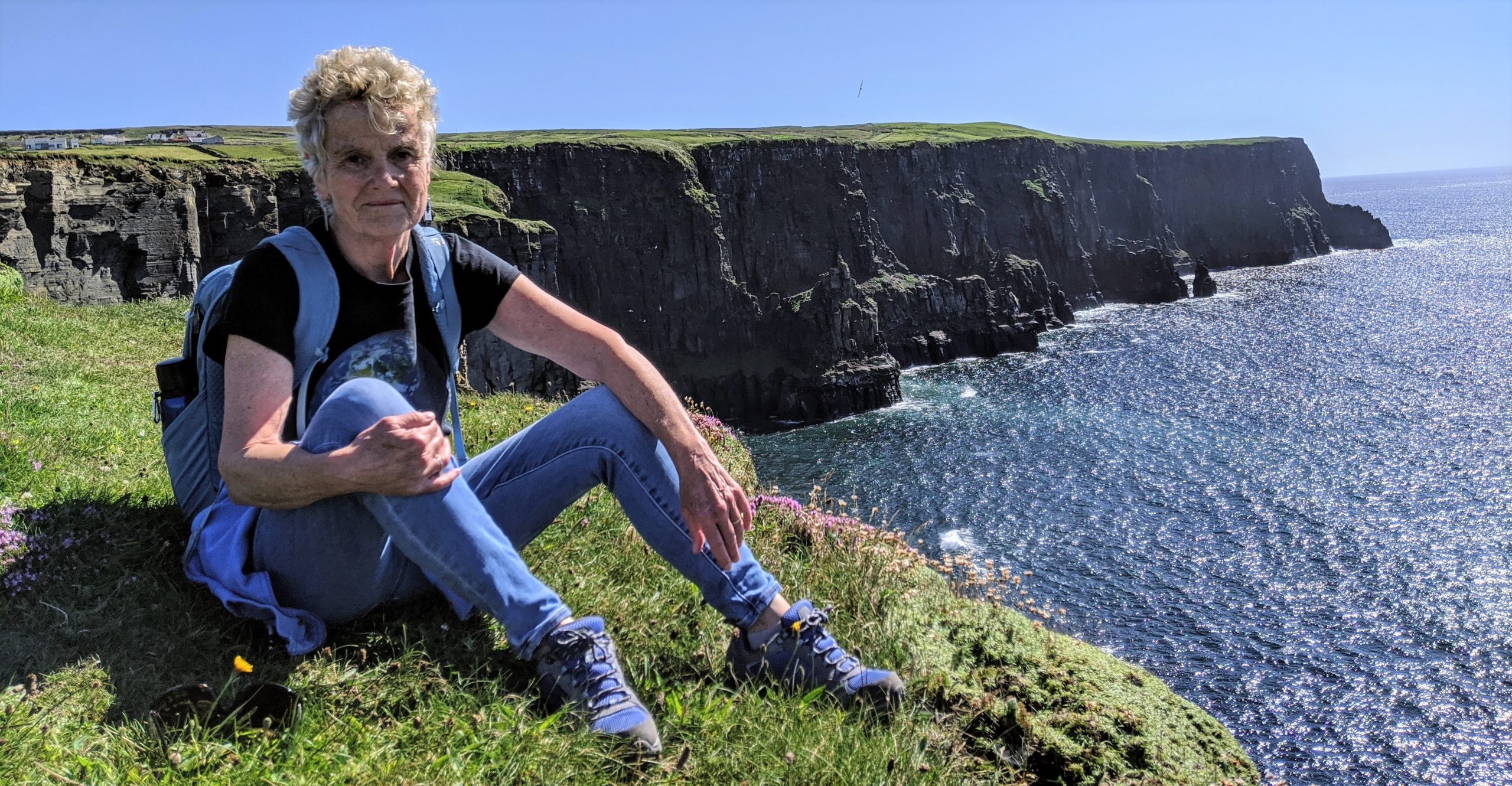
Reader Comments
Enjoyed your trip! Thanks.
Nice photos and interesting commentary. I don’t recall if people in Lisbon and Porto met my eye or waved when I was there. I do remember Scotland being open hearted and friendly, however. Probably a bit like Ireland.